Latest News
Newsletter February 2014 – Spelling and spellbinding!

Spelling is less important than spellbinding!
“spɛlbʌɪnd” verb / gerund or present participle: spellbinding.
To hold the complete attention of (someone) as though by magic; to fascinate.
Synonyms: fascinating, enthralling, entrancing, captivating, riveting, gripping, very interesting, very exciting, thrilling, absorbing, compelling, hypnotic and magical. Origins: dated back to the 1800’s from the words “spell” (magic) and “bind” (captivate).
I hear many reasons why people are not so good at doing whatever they have to do in English (apart from just speaking it) and some of the excuses I like best are “because I want to be perfect!” or “because I am afraid of making mistakes”.
I don’t want to get onto that “broom” with them so I ask them then, in that moment, to think about the speakers, presenters, trainers, leaders, do-ers…in fact anyone who held their attention for longer than 5 minutes and who left them feeling inspired and motivated. I ask them to describe the use of vocabulary, voices, body language, gestures and facial expressions. Then I ask them to tell me if everything the person did was “perfect”. Was the pronunciation always 100% correct? Of if they knew whether the person had actually spelt everything correctly?
Well you know as well as I do what the answer is.
When somebody is being absolutely spellbinding with their message, their voice, their gestures…(in other words their authenticity) pronunciation, grammatical correctness and spelling matters less. In that very moment they are creating spellbinding “magic”!
Don’t get me wrong. I truly appreciate the strive for perfection and professionalism in what we do, but spending too much time on not making mistakes or trying to be perfect brings you exactly that, which you don’t want.
In there lies another “magic” that “energy flows where your attention goes”. So turn it around.
Break the spell, cast some positive magic, and be a spellbinding presenter or communicator.
And hey, guess where you can get your spells, I mean skills, on how to
· delight others with your English and communication prowess,
· learn captivating vocabulary
· enchant with your voice and nonverbal magic to
· deliver spellbinding speeches
I wish you a fantastic February and I look forward to sharing some linguistic magic with you!
![]()
PS 1: Thank you to Jerry Wechsler for his line which served as inspiration for this NL!
PS 2: Spellbinding speeches
PS 3: More on “to be” or “not to be” perfect here
PS 4: If you can’t be spellbinding – knowing how to spell is certainly a very big advantage – book your English course now!
Newsletter January 2014 – Let’s go!

2014 is here! Let’s go, let’s go!
Thing 1: Let’s go learn a language!
Why? You know!
We want to get on with our new boss or colleague who is not from “here” and does things differently, “wheel and deal” with other countries, learn about business tricks that make businesses or people successful in other countries, OR business tricks that make businesses and people in other countries, successful. Or simply to live in a (more) peaceful world. That’s why!
Intercultural understanding begins with improved language skills. If we are competent in other languages we can bridge gaps between cultures – in turn promoting greater understanding which leads to greater interpersonal success.
The proof of too little intercultural understanding and communication (e.g. misunderstandings; mistrust; unwillingness to cooperate, negotiate, compromise and conflict) is all around us.
So let’s learn a language!
Any language will do, but seeing as English is still the “global” language we might as well go with English. Learning another language gives us the ability to “step inside” another culture. Without this, true communication is limited.
Thing 2: Let’s go learn some skills!
So it’s not only the “what” (language) but the “how to” (skills) that’s important too!
How to ask the right questions for ultimate understanding.
How to listen, and not always “talk at” someone.
How to present ourselves, our work, our ideas.
How to negotiate and get what we want with mutually beneficial outcomes.
How to divert or constructively manage conflict. How to understand culturally diverse teams.
How to be a global “high flier” because we already possess the know-how stuff for clear and connective communication!
Last Thing: We can learn more about Thing 1 and Thing 2 at SALT!
Let’s go! Let’s soar!
German Version
Ding 1! Lasst uns eine Sprache lernen!
Warum? Du weisst es!
Wir wollen gut mit unserem neuen Chef, oder Kollegen auskommen, der nicht von “hier” ist und die Dinge anders tut, mit anderen Ländern „feilschen und handeln“, wollen über Geschäftstricks lernen, die unsere Geschäfte, oder Leute in anderen Ländern erfolgreich machen, ODER Geschäftstricks, die das Geschäft und die Leute in anderen Ländern erfolgreich machen. Oder einfach um in einer friedlich(er)en Welt zu leben. Deshalb!
Interkulturelles Verstehen beginnt mit verbesserten Sprachkenntnissen. Wenn wir Sprachkompetenzen besitzen können wir kulturelle Unterschiede überbrücken – weiterführend können wir größeres Verständnis vorantreiben, was zu größerem zwischenmenschlichem Erfolg führt.
Der Beweis für zu wenig interkulturelles Verständnis und Kommunikation (z.B. Missverständnisse, Misstrauen, Verweigerung zu kooperieren, verhandeln, Kompromisse zu schließen und Konflikte) ist allgegenwärtig.
Lasst uns also eine Sprache lernen.
Jede Sprache wird nützen, da Englisch aber noch immer die “globale” Sprache ist, können wir auch gleich Englisch nehmen. Eine andere Sprache zu lernen gibt uns die Möglichkeit in eine andere Kultur “einzutreten”. Ohne dem ist wirkliche Kommunikation limitiert.
Ding 2! Lasst uns Techniken lernen!
Es ist also nicht nur das “was” (Sprache) sondern auch das “wie” (Techniken) was ebenfalls wichtig ist.
Wie stellt man die richtigen Fragen für höchstes Verständnis.
Wie kann man zuhören, und nicht immer nur auf jemanden “einreden”.
Wie können wir uns, unsere Arbeit, unsere Ideen darstellen.
Wie können wir verhandeln, so dass wir erhalten was wir wollen und beide daraus profitieren.
Wie kann man ein Gespräch in eine andere Richtung lenken, oder einen Konflikt konstruktiv bewältigen.
Wie kann man kulturell unterschiedliche Teams verstehen.
Wie können wir globale “Senkrechtstarter” sein , wenn wir schon all das Wissen für klare und verbindende Kommunikation besitzen!
Letztes Ding!
Wir können mehr über Ding 1 und Ding 2 bei SALT lernen!
Lasst uns gehen! Lasst uns aufsteigen!
Ich wünsche Dir einen großartigen Start ins neue Jahr, und freue mich darauf Dich bald wiederzusehen, liebe Grüße,
Wishing you a great start to the new year, and looking forward to seeing you again soon, regards,

Newsletter December 2013 – Advent and Nelson Mandela

The Candles of Advent and Nelson Mandela
As we prepare for Christmas, as we light our candles to brighten short dark days and as we light our Advent candles on a Sunday – I see the warm glow of Nelson Mandela’s legacy shining on.
Nelson (the name given to him by his school teacher) Mandela, son of Africa kindled the unwavering first Candle of Hope. A symbolic flame for everything he believed in and fought for, never giving up hope, not for one day in 27 years. Not ever.
* “I am fundamentally an optimist. Whether that comes from nature or nurture, I cannot say. Part of being optimistic is keeping one’s head pointed toward the sun, one’s feet moving forward. There were many dark moments when my faith in humanity was sorely tested, but I would not and could not give myself up to despair. That way lays defeat and death.” NRM
Madiba – a tribal name bestowed on persons of great respect – also held the second candle – the Candle of Love – showing the people of South Africa and the rest of the world the way of positive change.
**“No one is born hating another person because of the color of his skin, or his background, or his religion. People must learn to hate, and if they can learn to hate, they can be taught to love, for love comes more naturally to the human heart than its opposite.” NRM
“Tata” – the Xhosa word for father, and in this case father to all South Africans, lived and radiated the Candle of Joy. His love, his smile, his humour, his song and his dance was his daily reflection of his lasting joy – and his profound ability to forgive!
**** “If you want to make peace with your enemy, you have to work with your enemy. Then he becomes your partner.” NRM
As I reflect on Advent and Christmas – a time of arrival, family, love, and sharing – the light of the candles shine on all my blessings and I realise that everyday can be lived as a “Madiba” day, not only at Christmas time.
I wish you a wonderful time with your family this Christmas. I look forward to seeing you in 2014 and wish you an excellent start to the New Year.
Hope, love, joy and peace!
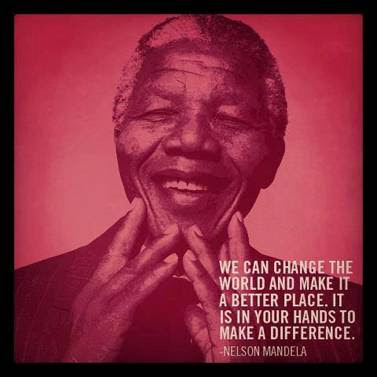
Newsletter November 2013 – Are you listening? Really Listening?
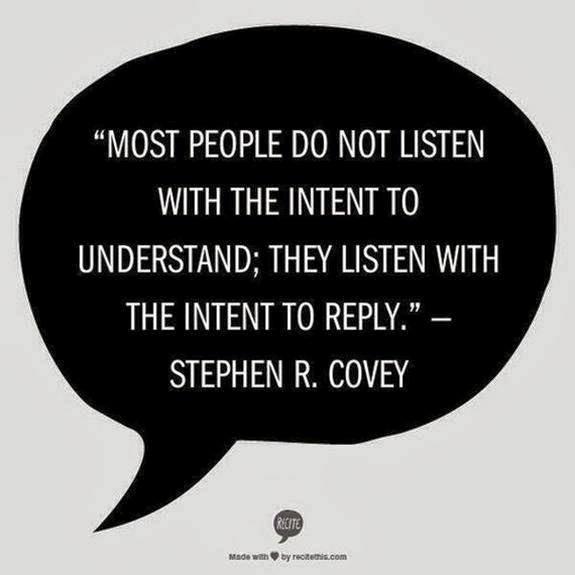
…which could explain why, so often, there are misunderstandings in communication!
Have you ever thought about how you listen, or about your particular listening style?
Do you listen attentively, or are you unconsciously listening competitively?
Let me explain.
Competitive or combative listening happens when you are:
- more interested in promoting our own point of view than in understanding or exploring someone else’s
- evaluating and making judgements about the speaker or the message
- listening to your own personal beliefs about what is being said
- you are waiting for a gap and formulating your rebuttal while “listening” with those “yes, but…”?

OR, are you listening passively or attentively?
This is a genuine interested in hearing and understanding the other person’s point of view BUT we assume that we have heard and understand correctly and therefore stay passive and don’t check what we have heard. The “aftermath” of not having verified, clarified or checked understanding usually occurs sooner than later.
Active or Reflective listening is the single most useful and important skill to listening.
To listen effectively, we must be actively involved in the communication process. In active listening we are:
- genuinely interested in understanding what the other person is thinking, feeling, wanting or what the message means
- active in checking our understanding before responding by restating or paraphrasing our understanding of the message and reflecting it for verification. With this verification or feedback process a misunderstanding is identified immediately, and can be clarified before any further misunderstanding occurs.
This is what distinguishes active listening and makes it so effective.
Active listening skills enhance and support workplace productivity and harmony in that:
- tasks and expectations are understood
- rapport with co-workers, bosses and clients is established
- resolves problems and conflicts between co-workers, bosses and or customers quickly
- answers questions and finds underlying meanings in what others say.
So what to do? Become an effective listener by practicing active listening and turning it into a successful communication skill.
You can also acquire more communication tips and tricks by attending one of our seminars or getting personal communication coaching. Don’t forget, if you “don’t have the time” we can “meet” on Skype. Contact me now.
Wishing you an awesome November

Do Something Different – Newsletter October 2013
Is it this…
or this…?
“If you keep doing what you have always been doing, you’ll keep getting what you’ve always been getting. If you want something different, you’re going to have to do something completely different!”
~ Paul Watzlawick.
I know I have used this quote by PW before, but this is exactly it. Every time I look at it I get new inspiration, and sadly, out there I see so many people doing the same thing over and over and expecting different results, that I am compelled to use it again!
Trying to maintain the “status quo”, digging your heels in deep and resisting even the most minor changes only leads to more frustration in the long run. On the other hand continuous improvement and “skilling up” reflects great flexibility, adaptability and resilience no matter what. If you were a boss, which characteristics would you be looking for in an employee?
Confucius said something about a reed bending in the wind is stronger than an oak which breaks in a storm. Which one would you prefer to be? What would you look for in a friend, or partner?
It is our vested interest to support you as much as we can in your continuous improvement and development, and so to make the Skills and Language Training more accessible I am introducing Skype lessons, and another great offer through the Mnemo Academy which is proud to present the first English NLP Basic Seminar in October
> English NLP Basic Workshop, 19th and 20th October 2013 – view more info
> SALT 1-to-1 Business English via Skype lessons you get:
- personal attention – one on one sessions
- to choose the times that best suit you
- the material or you can buy a recommended course book best for your needs
- homework – if you want
- to choose the topics and content want and need such as topical issues, grammar, vocabulary, skills for meetings, presentations and negotiations, intercultural communication etc.
- to choose the duration of the session: 30 minutes @ €26 or 50 minutes@ €48 – buying a block of 10 units gets you a 5% discount
Before you start your 1-to-1 Skype Business English course I will conduct a free 15 minute Skype leveling session with you to establish your language needs and recommend the content of your Skype Business English course. It’s as easy as that!
Contact me by email at hester@salt-pro.com providing me with your full name, contact number, Skype name or ID with “SKYPE BE” in the subject line.
I look forward to seeing you on Skype, at the Mnemo Academy, or even at one of SALT’s very own courses or seminars! Have a great October and remember to remain curious!
Newsletter September 2013
Untranslatable words or just getting lost in translation?
I hope you‘ve had an awesome summer!
I‘ve just returned from a 6 week trip to my home country and sometimes when asked to describe my experiences it is hard to find one word that aptly describes it all. I also had an opportunity to conduct corporate in-house training for a diverse group of South Africans while there and periodically observed mild misunderstandings in communication even though we all speak the same language. Have I been out of my own woods for too long? Have I mixed in European (or Austrian) cultural “trees” into my own communication? Do my fellow South Africans have another understanding of the same words?
Friedrich Nietzsche quoted, “Words are but symbols for the relations of things to one another and to us; nowhere do they touch upon the absolute truth.”
So true! Knowing this, and understanding “the map is not the territory” (a presupposition from the study of NLP) is so important if you want to achieve clarity and connectivity in your communication.
The relationship between words and what they mean when sharing a common language or when a language is shared by non-native speakers, is and has been a fascinating and very complex one. Linguists and other experts have spent a lot of time analysing, and coming up with theories as to why there are so many feelings and ideas that differ so vastly and why we sometimes cannot “find the right words”.
I know. I have had many interesting, albeit lengthy discussions with writers or speakers when trying to find a word which would best describe the emotion, fact, idea, value they are trying to express. There are words which our languages simply cannot identify or translate. Like “Waldeinsamkeit”*. We can only describe it in a sentence which (also) evokes different interpretations! Ralph Waldo Emerson even wrote a poem on “Waldeinsamkeit”.
Remember, you are not “alone in the wood”s when it comes to any communication and language needs you may have, and I look forward to supporting you. I wish you success!
PS.
Returning home is the most difficult part of long-distance hiking; You have grown outside the puzzle and your piece no longer fits.
— Cindy Ross
I go to nature to be soothed and healed, and to have my senses put in order.
— John Burroughs
Adventure is a path. Real adventure – self-determined, self-motivated, often risky – forces you to have firsthand encounters with the world. The world the way it is, not the way you imagine it.
— Mark Jenkins
Inspiration and images taken from Maptia Blog and Huffington Post
*Definition: Waldeinsamkeit
Newsletter June 2013
Why not?
While working with some young and very talented project managers a few days ago, I posed the following question: „If there was absolutely nothing to stand in your way, and money played no role, what job would you be doing”? I got very different answers and the jobs mentioned were not what the PJ’s are currently doing . It made me worry, and think of Einstein.
I understand there are times when you just have to do what you have to do; like earn a salary to pay bills, go on summer holidays and do fun things like skills and language courses at SALT . The thing is to stay focussed on who you want to be and what you want to become and not get lost in external and internal “noise”. Carry on dreaming and scheming – or risk becoming a grammatical expert in conditionals (“if I had known what I know now, I would have…” or “I wish I had done XYZ when…” or “If only I had…”).
We waste too much time and energy fretting about challenges we might have to face at some unknown point in the future or about the mistakes we have made, or trying to live up to others’ expectations – and not pleasing anyone including ourselves . Isn’t it time to stop deferring what you want most? You possess everything you need to move into your unknown and to succeed. You lack nothing. All you have to do is dream, scheme and then commit. Your success will be in direct proportion to your commitment.
“If your mind can conceive it; and your heart can believe it – then you can achieve it!” Muhammed Ali
Why not do an NLP Basic Seminar which the Mnemo Academy in Vienna will be hosting? Why not do a Skills or Language course at SALT?
The extra tricks and fun come at no additional cost and the seminars will definitely help you move closer to your dream! Are you ready?
As always,
PS: “What if ” is limiting. “Why not” is limitless.
Try this simple little exercise: Take a look at the various quotes on this page and then ask yourself “Why?“. “Why change?” . Then ask yourself “Why not?” Simply that. You’ll be amazed at how energising and inspiring two words can be.
Newsletter May 2013
Grammar and English “found” in translation…
On the plane last week to Germany I read the FT…
start again…
On the way to Germany last week while I was reading the FT on the plane I …
start again…
I was browsing through the Financial Times on the plane to Germany last week, and came across the article “Grammar is a vital tool for any executive”. It grabbed my attention!
In my work I almost always get requests for “conversation” English, or “small talk” English: “not too much focus on grammar please”. And then, when we get to “conversing” and making “small talk”, I am graced with incorrect language and phrase usage.
The FT article confirms the need for grammar; to do a little more than just “small talk”. Grammar is important. Grammar is the SALT and pepper, the spices and the herbs, the oils and the wine – grammar is like the unseen ingredients which turn a meal, into an extraordinary fusion of flavours! Grammar, with select vocabulary, is that which turns language into a beautiful symphony of spoken sound. Grammar is that which turns everything we say into clarity – clearly constructed communication. If you’re an executive, professional or student, you need to report. You need to know about indirect and passive speech forms. That is grammar. Find the FT article here.
Do you want to join me for some grammar coaching or for a reporting seminar?
After the FT, I flipped through the pages of the Austrian Airlines in-flight magazine. A few articles needed my going over the titles/captions a second time because it just didn’t read, in English, what it should. “Osteopaths and chiropracters will be pleased” vs. “Alle Osteopathen und Chiropraktiker freuen sich” or “It gets well into the calves” vs “Das geht schön in die Wadln” and here the best “Go away calmly” vs. “Beruhigt verreisen” are just more examples of the fact that grammar and most (idiomatic) expressions cannot be translated from German (worse still Austrian) to English, word for word. I’m going to offer my translation and language training services to Austrian Airlines!
If you feel like having a go at the translation you are welcome to send them in and if you want to know what they should be, contact me! Language is so much more than just words – and a whole lot of fun!
Wishing everyone a beautiful month of May!
As always,
Explanation: To “know your shit” is the colloquial way of saying you’re an expert – you know what you’re doing, saying and talking about. The other is knowing you’re not and it is time you contact us at SALT for some grammar coaching and a reporting seminar!
Newsletter April 2013
New, inspiring, simple and extraordinary things!
February and March were busy AND fabulously inspirational!
Last week I heard that a French software company had just launched a new social software which allows for a novel dimension in business service – namely “face to face” service – reducing emailing and allowing for more person to person contact.
I am extremely excited about this development! Trainers have been up against companies and institutes offering e-learning and virtual classroom solutions to HR and training departments for too long. These “self-learning” applications and programs certainly have a valid list of benefits (especially for companies on big cost cutting and saving initiatives) – but these programs remove and lack a truly essential component – real time interaction and inspiration which supports hands on implementation.
I am so looking forward to reliving this “new” touchy-feely-fun-face-to-face learning direction, which endorses my earlier message about simple activities being turned into extraordinary events by doing them with the right people.
Earlier I went home to fulfill a dream – to visit a crash (herd) of rhinoceros (Naashorn) at the Palala Rhino Sanctuary in South Africa. I spent days “just being” with these magnificent animals who are rapidly becoming extinct as a result of rhino horn demand from Asia in their natural environment. A truly inspirational experience of “simple things – an early morning walk in the bush – made extraodinary” – because of the presence of rhino. Here’s an account of my time with the Palala rhinos.
We have just celebrated Easter, which always delivers reflective yet inspirational messages – good for everyday use. Check out this Easter inspiration!
And finally here my belated “Happy Birthday” to all my March birthday-bodies. May your new year be filled with simple things turned into extraordinary events!
See you at one of our Skills or Language seminars soon. I guarantee you a simple thing like improving your language proficiency will be made extraordinary at SALT!
As always, best wishes

“Never doubt that a small group of thoughtful, committed citizens can change the world”.


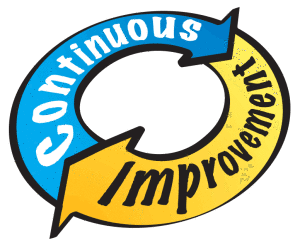


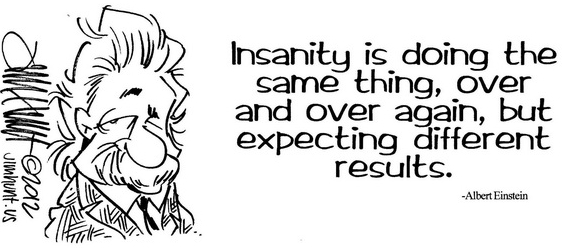

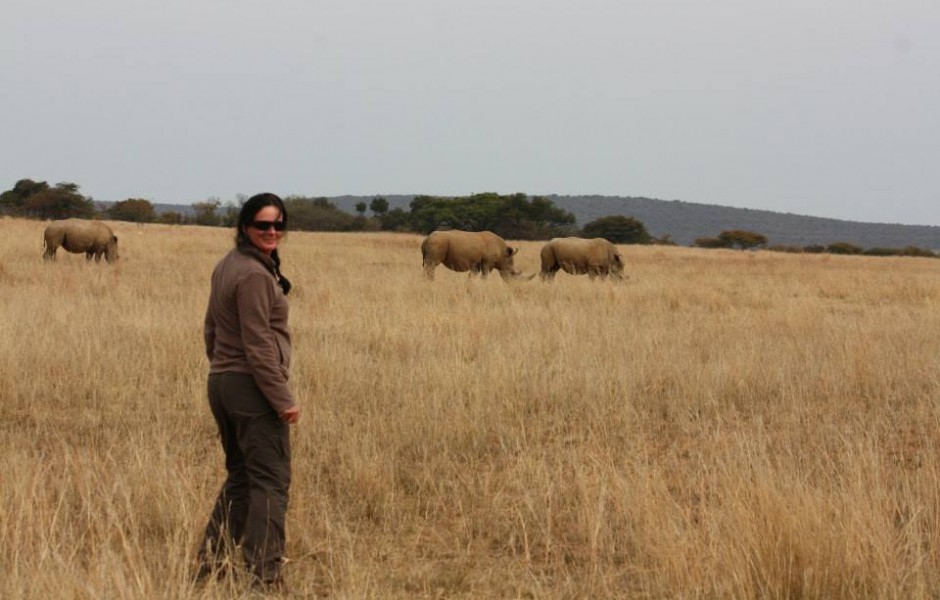
Recent Comments